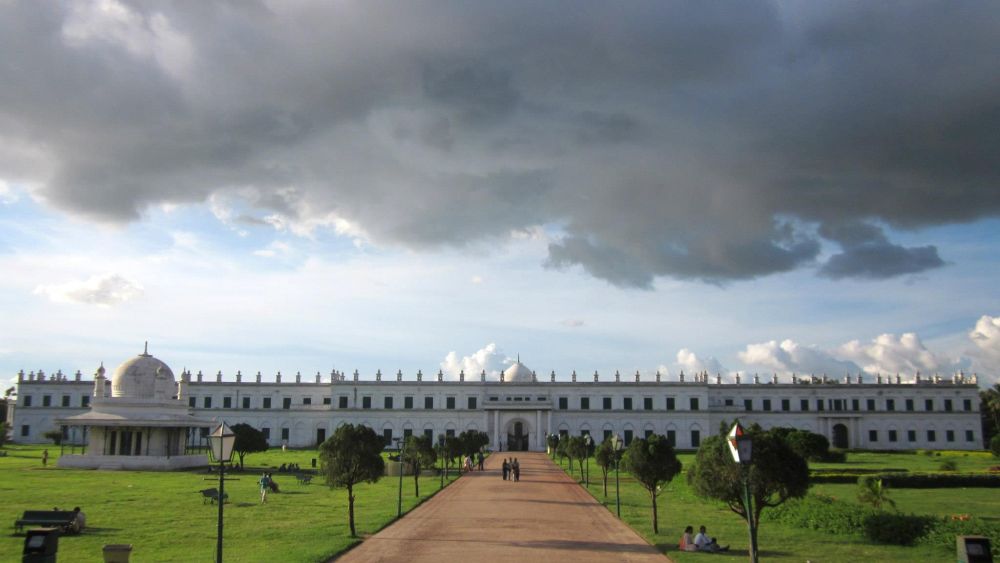

The historical gem of Murshidabad, the Nizamat Imambara, stands as a significant landmark of the rich Islamic heritage in India. Built in 1847 by Nawab Nazim Mansoor Ali Khan Feradun Jah, son of Humayun Jah, in the wake of his father's Imambara which was destroyed by fires, this religious edifice has a prominent place in the annals of tourism history in West Bengal.
The Nizamat Imambara was constructed as a Shia Muslim congregation hall for observing Muharram, the sacred month which commemorates the martyrdom of Hussain ibn Ali. Its historical significance is unrivalled, considering it was erected alongside other grand structures such as the Hazarduari Palace and the Katra Masjid within the same complex, reflecting the bygone era of Nawabi rule in Bengal.
As a tourist destination, Nizamat Imambara holds a special place. Its majestic structure, flanked by the Bhagirathi river, has been a draw for visitors from all over the globe. The imambara, touted as the largest in India and the second largest in the world after the one in Lucknow, has captured the imaginations of travelers with its grandiosity and spiritual ambience.
In recent years, Murshidabad has witnessed a steady increase in tourism due to the government's initiatives to promote its historical treasures. Exploring the Nizamat Imambara is often complemented by tours of the surrounding structures and the nearby museum, providing an immersive historical experience. Modern tourists are keen to engage with places that offer a blend of culture, history, and architecture, and the Imambara fits this trend perfectly.
Efforts to preserve the grandeur of the Nizamat Imambara are ongoing, with organizations striving to maintain its centuries-old heritage. Accessibility has improved over time, with better transportation options and guided tours enhancing visitors' convenience. The West Bengal Tourism Development Corporation has been pivotal in facilitating tourist inflow to this historic site.
The Nizamat Imambara in Murshidabad continues to stand tall as a beacon of India's Muslim heritage and architectural prowess. Its fusion of Persian and Bengali features has earned it an esteemed place in the annals of tourism in West Bengal. Visitors, historians, and architecture enthusiasts remain captivated by the splendor of this timeless edifice.